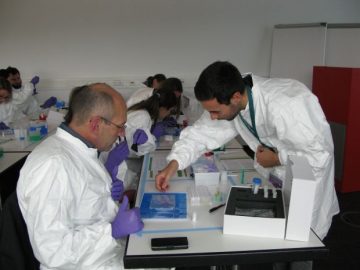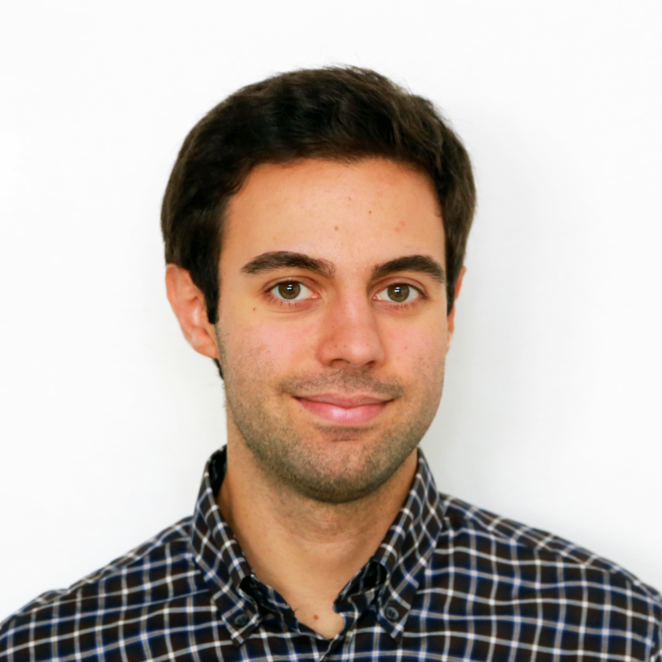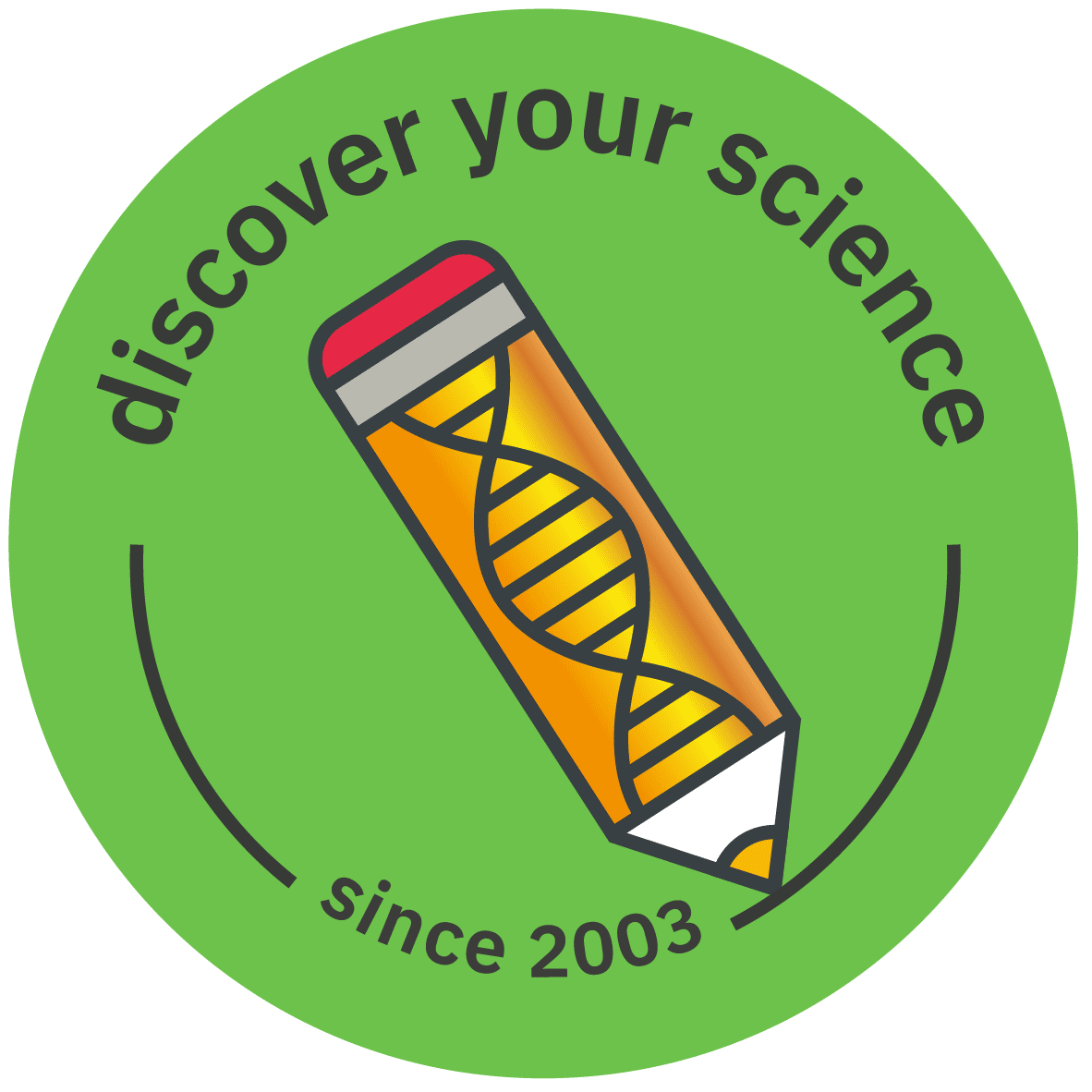EMBL School Ambassador Riccardo Pederzoli
Country: Italy
Profile
When I was a child, I came into contact with the mineral world: since that time, I have always been fascinated by the mathematical and physical description of crystals. During my university period – I studied Pure Chemistry at the University of Bologna and University of Padua – my interest was strengthened, mainly due to my increased knowledge in Chemistry, Physics and Mathematics. I explored crystals from different angular views: I became interested in Mineralogy, in the crystal growth of both organic and inorganic small molecules (from both a theoretical and practical standpoint) and in the crystallography of large macromolecules. My curiosity led me to start playing with crystals, to the point where I became a good crystal grower: I set up a small lab in my house, where I grew crystals of simple inorganic compounds using different techniques. This opportunity to experiment and try out things on my own has been crucial for my scientific development and I am grateful that my parents let me have these experiences. I believe that strong passion and commitment, as for any other thing in life, are required to become a good scientist – but a naturally inquisitive mind makes everything easier and allows you to enjoy what you are doing.
Doing a Ph.D. was a natural choice for me: it represents a great opportunity to study and apply scientific concepts at the same time. There is no better way to learn! Although a PhD means working within quite a restricted area of science, I always take the chance to reconnect my work to a more general, broader sphere. In my PhD project, I am applying a strategy to determine the structure of macromolecules (proteins in particular) which has not been fully explored yet. I believe that, regardless of the topic of the project, doing a PhD provides a great opportunity to develop a critical way of thinking and approaching problems – not only restricted to science. It also allows learning how to work as part of a team, interacting and discussing in order to find the solution to a problem. As our lives are based on the interaction with others, this is a valuable skill which can be applied to many situations! In EMBL I have found the best place to do that and I hope to contribute to its success!
Diary
ELLS LearningLAB “Bringing structures to life – new ways of teaching biology”, EMBL Hamburg, October 2016
Together with another PhD student in Hamburg, Philipp, I have been involved in the organization of the ELLS LearningLAB for high school teachers at EMBL Hamburg.
The organization of the 2-days course has turned out to be a very good and positive experience, which allowed me to build on my existing skills and competencies and to acquire new ones. In fact, I improved my communication abilities that were needed in order to plan the course but also to interact with the participants. I also strengthened my organization/logistical skills which helped me in setting up all the activities before the start of the course. Thanks to this experience, I improved my team working skills: sometimes is not easy to work in a larger group of organizers and you have to mediate and find compromises, but in our case I have to admit that it has been very easy to work in team and we really enjoyed collaborating with each other to reach our goal! In addition, I had the opportunity to engage my social skills – a course is not just made-up of lessons and practicals, but it’s also about getting in touch with new people, creating and widening a network and discovering other perspectives. In fact, I found the social part to be as important as the scientific one: I learnt a lot about the daily work of the teachers and the education systems in other countries.
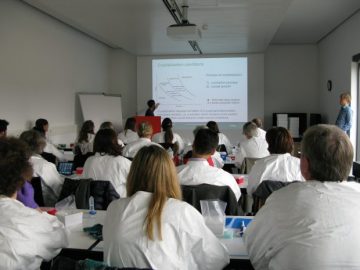
Among the different things that I learnt during the course, one of the most important ones was that teaching science is not as easy as it may seem: during the 2 days, I gave a couple of short lessons to teach the basic theory of crystallization and to instruct the participants on the hands-on practical. I also took the participants on a tour to the X-ray beamlines of the synchrotron. In my explanations, I tried to be as clear as possible and to fit the content to the different backgrounds of the teachers – a task that proved to be less trivial than expected. Among the participants there were teachers of different subjects and varying experience in scientific research, and communicating even a simple message to such a heterogeneous group can be challenging. In such a situation, you have to consider which words are the best ones to express your message, how to provide a simple explanation without losing precision and accuracy, and how to logically order the contents so the audience can follow easily . As these are points to consider for any kind of talk or teaching lesson, this experience has proven a useful exercise for my work as a scientist as well.
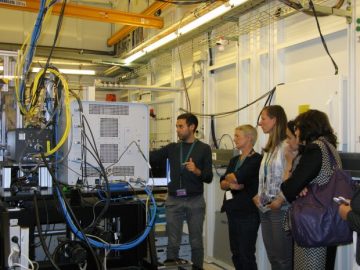
It is hard to tell which part of the course I enjoyed most! Although it was challenging at times, I really liked teaching and helping the participants with all the activities. At the same time, I also had fun in preparing everything before the course started: I really like planning and organizing scientific events, and it is my intention to continue developing this side. That is why I am already looking forward to embarking other similar events in the future!
I feel rewarded because all the teachers left Hamburg with as smile and happy with their choice to attend the course! I also felt appreciated by the ELLS Team for the work we have done: we just provided a little help, compared to the hard work they did. Nonetheless, I feel proud of myself!
Having been involved in this course helped me a lot in developing and improving some important skills and I will profit from this experience in my work as well as in my personal life – because some of the things I learnt will definitively make me a better scientist and a better person!
